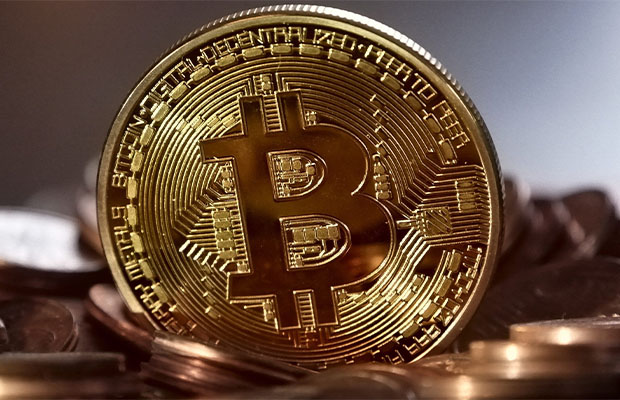Many investors may ask: why bitcoin will fail? It is currently unstable, irrational, speculative, volatile, complicated, and excessively euphoric. For your benefit, we will provide an explanation here.
Although being the first does not guarantee longevity, Bitcoin will always hold a special place in history as the mother cryptocurrency.
Here are the main explanations for why Bitcoin won’t succeed.
Table of Contents
What is Bitcoin?
You must have a basic understanding of Bitcoin and the blockchain since you found this article by chance. To begin with, you need to understand the distinction between Bitcoin and bitcoins. The first one alludes to the blockchain’s broader design, its user base, and the software’s protocol. However, bitcoins (not capitalized b) are a form of currency that utilizes blockchain technology and are sometimes abbreviated as BTC.
Knowing the fundamentals of Bitcoin, it’s important to remember that all of its transactions are documented on a decentralized public ledger, with copies of that data kept on servers all over the world. Anyone with a computer, phone, or tablet that can access the internet can install these servers, which are also known as nodes. Thus, these nodes cryptographically concur on who has the coins rather than relying on a single source of trust, like central banks.
Why Bitcoin Will Fail?
Below we list the top 6 reasons here.
There is no real value
According to some, since we abandoned the gold standard, fiat money—the common currencies we all use today—no longer has any real value. This is untrue; the value of fiat money is determined by the strength of the government that backs it. In fact, on the Indian rupee note, you will see a “promise to pay the bearer” issued by the RBI governor.
In the US dollar, you will see the words “legal tender”, which means the same thing. The ability to tax citizens and businesses, sell public property, issue bonds, and use other methods to back their currencies are all powers that governments have. These are strong forces that inspire assurance that the currency’s value will continue to exist.

Because of a company’s ability to turn a profit from the products and services it sells, its stock has real value. Commodities have real value because businesses buy them to use as raw materials in the creation of products and services.
The only thing that gives bitcoin value is someone else’s willingness to purchase it from you. It resembles a work of art in that regard. However, even a piece of art has the power to enhance the environment in which it is placed. Even that is not present in Bitcoin.
There is no stabilizing force
The government issuing fiat currency puts up a strong defense for it. Central banks go into the international monetary markets to perform “market operations”, which is to buy or sell their national currencies in order to keep them stable. A currency is worthless without stability.
A terrible currency, bitcoin is unstable. No matter how many vendors claim to accept it. Just consider this: if you had bitcoin, would you buy anything with it? You would only use fiat money, so you won’t. That’s because you didn’t purchase bitcoin to be used as money. You bought it in the hopes that its value would increase as a speculative investment. Due to your concern that bitcoin’s value will increase by 20% two weeks from now, you wouldn’t pay in bitcoin. For the same reason, when bitcoin’s value begins to decline, merchants will stop accepting it as payment because they don’t want the value to drop by 20% a week later.
It is in competition with national currencies
Bitcoin, according to its proponents, will displace fiat currency. Bitcoin is in competition with national currencies if even a remote chance of this happening exists. Can we really imagine the central banks of China, the US and the EU saying “let’s cancel our currencies and just use bitcoin, which no one can control”? Their monetary systems would be destroyed by this! China has outlawed mining and trading of bitcoins, as we have seen in recent days. Many other nations have also made suggestions that they would follow suit. So, no, nations won’t adopt bitcoin. They’ll launch their own versions in its place, followed by a ban on bitcoin.
Investing in bitcoin is not investing in blockchain tech
The most recent blockchain technology is used in stablecoins, which are cryptocurrencies backed by real assets (like the US dollar). These coins are much better suited to be used as money because their volatility is limited to that of their underlying assets. Therefore, to reiterate, nobody is purchasing bitcoin due to its blockchain technology because there are better alternatives.
Bitcoin Mining is Not Environmentally Friendly
Bitcoin miners, who carry out transactions using a lot of processing power in exchange for Bitcoin rewards, are frequently criticized.
The Bitcoin network, according to some estimates, consumes as much energy as Norway and Argentina put together. Environmentalists have therefore given Bitcoin mining a lot of scrutiny for that reason as well as the additional electronic waste generated by the specialized equipment required for the activity.
Bitcoin is a utopian dream
If bitcoin has so many issues, why are famous people still buying it? Some bitcoin proponents envision a world without governments and a fully democratic financial system. Based on the aforementioned considerations, I have little faith that this future will materialize.
An important factor in the increase in the value of bitcoin is the enormous amount of liquidity that is currently present in the markets as a result of the monetary and fiscal policies adopted by many governments to combat covid. Long-term viability is not possible with this.
Whatever additional benefits bitcoin may have over fiat money, such as transaction speed, will be diminished once fiat money is fully digital.
Is Bitcoin’s Destiny Prosperity Or Utter Failure?
Since its inception, Bitcoin has come a long way, becoming legal tender in El Salvador among its many achievements. But it’s obvious that the digital asset faces a number of difficulties, including those related to functionality, sustainability, scalability, and volatility, that must be resolved in order to prevent the entire structure from collapsing.
Despite the fact that its closest competitors have made significant progress toward resolving these problems, Bitcoin’s fiercest detractors still predict that it will eventually fail.
Last but not least, there are a small number of Bitcoin developers who have been known to work nonstop on the network, constantly looking for ways to make it better. For instance, the Taproot, a recent update, aims to address some of the scalability and functionality problems.
You May Also Like: What Are The Common Advantages Of Long-term Investment?
FAQs
What Happens If Bitcoin Fails?
When a cryptocurrency fails, investors will most likely lose all the money they put in. The majority of nations do not recognize cryptocurrencies as legal tender.
Is Bitcoin Likely to Fail?
While cryptocurrency is not likely to fade into extinction, Bitcoin just might. Don’t sell in a hurry if you believe that Bitcoin might actually be a dead coin walking.
Final Take
Since a central bank cannot control the blockchain, cryptocurrencies level the economic playing field, which was initially the allure of bitcoin.
Bitcoin might go extinct, even though cryptocurrency is unlikely to do so. Don’t panic sell if you have reason to believe that Bitcoin may in fact be a dead coin on the move. If you sell your BTC while you’re losing, your losses will be locked in. The IRS will levy capital gains taxes on you if you sell while you’re ahead.
Speak with your financial advisor, but if you bought your Bitcoins for more than they’re worth right now, think about waiting out the crypto winter. If you’re up, think about waiting until your short-term gains become long-term gains to reduce your tax burden.
Read More: Why Are Gas Prices So High?
Tags: Bitcoin
